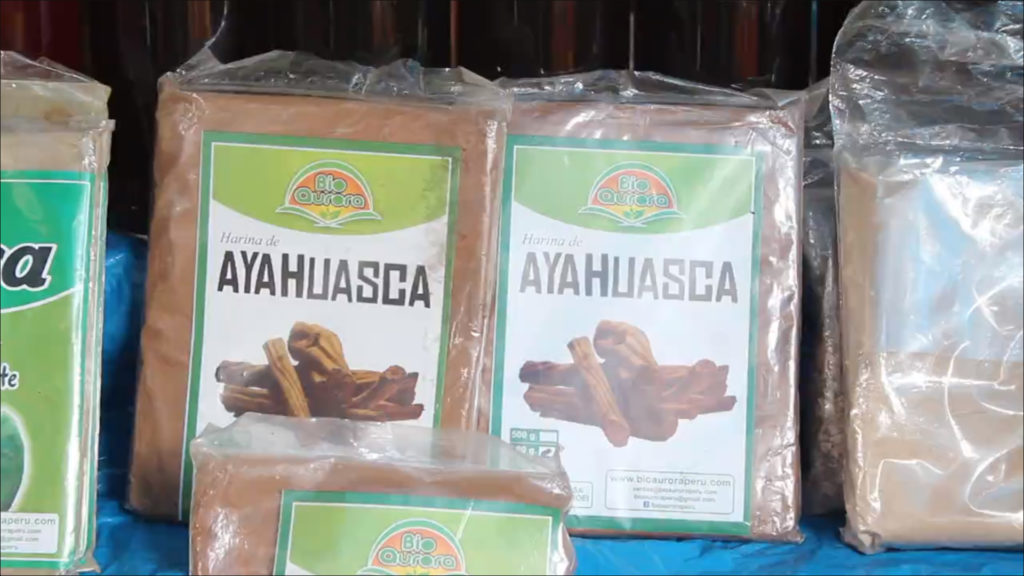Journalist, photographer and anthropologist, Carlos Suárez has been living in Leticia, capital of the Colombian Amazon, for seven years. Leticia is an epicenter of ayahuasca tourism which is a few hours by boat from Iquitos. From his perspective, ayahuasca tourists have created a shift in faith away from spirits and towards the molecules found in ayahuasca.
In his presentation “Reciprocity and impact of ayahuasca tourism” at the 2019 World Ayahuasca Conference, Suárez dismantled the construction of Amazonian “traditional medicine.” He said, “There is a real obsession with ‘the traditional’ in the world of ayahuasca, and not only among neophytes, but also among people who work at ayahuasca retreat centers in Iquitos. I think that the fixation on the traditional has to do with the idea that ‘traditional’ is associated with ‘legitimate.’ However, the word ‘tradition’ is a trap. The ayahuasca curanderismo practiced in Ucayali, Marañon, Iquitos and the Upper Amazon is a nonconforming system, which is very creative and in perpetual evolution.”
It is through this lack of conformity that the author of Ayahuasca, Iquitos and Monster Vorax prefers to speak of “local treatments” instead of “traditional treatments,” the latter being those offered by retreat centers aimed at outsiders. There is substantial difference between the two. According to Suárez, “In the local system, ayahuasca is the healer’s tool to connect with the spirit world, to receive the information and chants to promote healing. In other words, in these ceremonies, patients rarely take ayahuasca, especially if they are sick.”

Faith in Molecules
In the “traditional” model, understood as the “new model” that prevails in ayahuasca centers, “the taking of ayahuasca by the patient is fundamental and essential,” according to Suárez: “No one travels to Iquitos and pays a thousand dollars for a week to sit and be chanted to. Faith is redirected from the spirit world to the molecules found in ayahuasca. This is the same faith that leads to taking it six times in ten days, an unusual frequency in the local context.”
The ways locals and foreigners approach ayahuasca is quite different, Suárez explained. Locals the plant “to empty their stomachs or cleanse bad energies… it is not by chance that ayahuasca is known as ‘the purge’.” In the case of foreigners, the intention is very different. “The visitors, especially the first-timers, arrive with the obsession of the vision,” he says.
Carlos Suárez: Ayahuasca Tourism Redirects Faith from the Spirits to the Molecules Click To TweetBut the vision does not always come. According to Suárez, “Many of the visitors who come to the shelters in Iquitos expect to have colorful visions like those of Pablo Amaringo and, instead, they spend a dark and nauseating night.”
This dissonance between expectations and results is rooted in the obsession with DMT, according to Suárez, “If you look in the scientific literature you will see that the MAOIs in ayahuasca only serve to activate the DMT of the chacruna. This contradicts local practice, where ayahuasca [the vine] is the key. It is not for nothing that in Colombia and Peru, yagé and ayahuasca are used interchangeably to name the vine and the remedy, with or without chacruna.”
Environmental sustainability
Carlos Suárez dedicated the last minutes of his presentation to respond to the data that Chris Kilham had previously presented on ayahuasca sustainability, where according to his field work, there is currently no concern.
“I have been researching the environmental impact of ayahuasca tourism in Iquitos since 2013,” he says. “I have concluded that ayahuasca has been eradicated from large areas of the Amazon rainforest around Iquitos. The price of the vine has multiplied by four or five times in this period and there has been an evident decrease in the quality of the raw material. It is not that I say so, it is that they say so.”
More information about Carlos Suárez Álvarez’s work can be found in Ayahuasca, Iquitos and Monster Vorax.
Original video:



